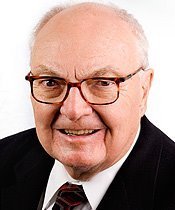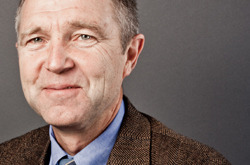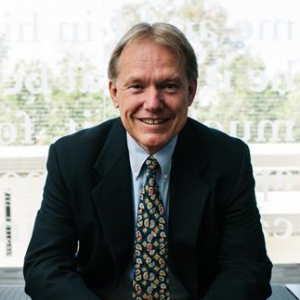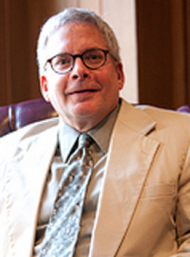The Kingdom of God: A Multi-Scholar Interview
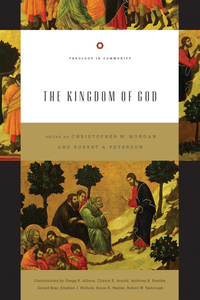 One series that deserves more attention is the Theology in Community series. Editors Chris Morgan and Robert Peterson gather outstanding contributors to look at crucial theological topics. By focusing on one subject and by finding the best scholars to address the subject from multiple perspectives—Old Testament and New Testament, biblical theology and systematic theology, apologetics and missional, historic and contemporary—they are able to go deeper and wider than any one theologian could go on his own.
One series that deserves more attention is the Theology in Community series. Editors Chris Morgan and Robert Peterson gather outstanding contributors to look at crucial theological topics. By focusing on one subject and by finding the best scholars to address the subject from multiple perspectives—Old Testament and New Testament, biblical theology and systematic theology, apologetics and missional, historic and contemporary—they are able to go deeper and wider than any one theologian could go on his own.
Below you’ll find some Q&A with the editors—along with Bruce Waltke, Bob Yarbrough, Clint Arnold, Gregg Allison, and Gerald Bray, who all contributed to the latest volume, which is on The Kingdom of God.
Chris Morgan and Robert Peterson
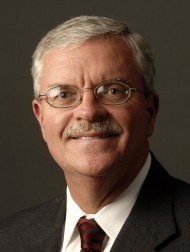 The Kingdom of God is the fourth volume in the Theology in Community series. What are some of the other books in the series?
The Kingdom of God is the fourth volume in the Theology in Community series. What are some of the other books in the series?
The first three volumes in the Theology in Community series are Suffering and the Goodness of God, The Glory of God, and The Deity of Christ.
The fifth volume, Fallen: A Theology of Sin, is due out in October. The sixth volume, Heaven, should appear in 2014.
What are the goals of the series? Why is it important? How is it distinct?
We named the series as we did for two reasons.
First, Theology in Community means we want to promote clear 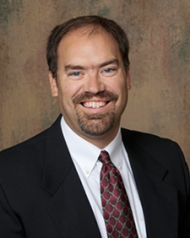 biblical thinking and godly responses to theological issues, both historic and contemporary. As we examine issues central to the Christian faith, we strive not only to follow a sound theological method but also to display it. Chapters addressing the Old and New Testaments on the book’s subject form the heart of each volume. Subsequent chapters synthesize the biblical teaching and link it to historical, philosophical, systematic, and pastoral concerns. Far from being mere collections of essays, the volumes are carefully crafted so that the voices of the various experts combine to proclaim a unified message.
biblical thinking and godly responses to theological issues, both historic and contemporary. As we examine issues central to the Christian faith, we strive not only to follow a sound theological method but also to display it. Chapters addressing the Old and New Testaments on the book’s subject form the heart of each volume. Subsequent chapters synthesize the biblical teaching and link it to historical, philosophical, systematic, and pastoral concerns. Far from being mere collections of essays, the volumes are carefully crafted so that the voices of the various experts combine to proclaim a unified message.
Second, Theology in Community seeks to do theology in teams. The teachings of the Bible were forged in real-life situations by leaders in God’s covenant communities. Theology was formulated by the church for the church. This series seeks to recapture that biblical reality. Scholars from many backgrounds, disciplines, and experiences with academic credentials work together. They have a high view of Scripture, robust evangelical convictions, and love grace. They are personally involved in ministry, serving as teachers, pastors, and missionaries. They stand in continuity with the historic church, care about the global church, share life together with others in local churches, and aim to write for the good of the church.
In your essays on the kingdom of God in the Old Testament, you refer to the “external emerging kingdom of God” and the “internal emerging kingdom of God.” What do you mean by these terms, and why have you found this distinction helpful?
By God’s external (i.e., universal) kingdom is meant the activity of God (‘elohim [Hebrew]: “the transcendent, omnipotent Creator and Sustainer of all things”) in exercising his sovereignty over all things. God parcels out to the nations their lands (Deut. 2:5, 9; 32:8), rules over their kings (Deut. 2:30), and even gives them their [false] gods (Deut. 4:19; 29:25-26).
By God’s internal (i.e., particular) kingdom is meant God’s activity in exercising his authority over his subjects who, out of their faith in him and love for him, serve only him.
By emerging I mean that both kingdoms become more and more clearly defined. It is now clear that Satan rules the universal kingdom and that Christ rules the Church in the particular kingdom.
The distinction exhibits more clearly how both kingdoms bring glory to God.
In the universal kingdom he shows his sovereignty over all things—he created and sustains all things, even the gods opposed to him. There is nothing outside of his purview. The creation, for example, exhibits his incommunicable attributes: omniscience, omnipotence, and omnipresence.
The particular kingdom exhibits his communicable attributes: mercy, love, patience, unfailing kindness, justice, and truth. The distinction, moreover, makes clear the nature of the war between the subjects of Satan and his kingdom and of Christ and his kingdom.
What questions about the kingdom arose for you or still linger for you?
What emerges more clearly for me and still remains something a tension is the reality that God has so designed history that his particular kingdom wars against the spiritual darkness of Satan’s kingdom that is a part of God’s universal kingdom.
In your essays on the kingdom of God in the New Testament, you began with Revelation. Why did you do that, and how was it helpful?
I started with Revelation because it completes the Bible’s portrait of God’s kingdom. You get parts of the picture throughout the Bible, of course. But I wanted to start with Revelation’s magisterial mural of the whole. I felt that would help us see the smaller parts of the picture for what they really are. Otherwise, there is a real danger of not seeing the forest (the kingdom of God in its eternal majesty) for the trees (the texts and narratives throughout the Bible that lay the foundation for and testify to the kingdom).
This results in putting Jesus’s kingdom sayings and labors in proper perspective. They flow toward the doxological vision found in Revelation. Now, “kingdom of God” is not just about doxology (the praise of God). But it should always lead in that direction. Starting with Revelation helps ensure that it will.
What questions about the kingdom still linger for you?
Hanging in the air for me are two kinds of questions.
First, how can we understand Christ’s teachings and actions in ways that will clarify what he meant by “kingdom”?
Second, what should it look like for us, personally and as the church, to live as subjects of Christ’s kingdom? Some people live with an acute political consciousness—they are right-wing, or left-wing, and it suffuses all they think and do. I think Christians should live with an acute kingdom consciousness, one that shapes all decisions and activities. But do we? This is a significant question that I hope the book will help people address in a more informed way.
In your chapter on “The Kingdom, Miracles, Satan, and Demons,” you state that miracles signify and demonstrate the arrival of the kingdom. Please explain.
Jesus himself declared, “But if it is by the Spirit of God that I cast out demons, then the kingdom of God has come upon you” (Matt. 12:28; see also Luke 11:20). Jesus invites all of those who marvel at his exorcisms to grasp what they really signify: that the Kingdom of God has arrived with him. The miracles of Jesus are also evidence that God’s Spirit was powerfully at work in and through him. This work of the Spirit heralds the arrival of the new covenant age and stands in continuity with the scriptural testimony of God working powerfully to bring redemption to his people. Jesus, empowered by the gentle Dove who descended at his baptism, would work to overthrow the dominion of the adversary. The new insight is that the Romans were not the enemy; the true enemies were the power of sin and the power of the evil one.
What questions about the kingdom still linger for you?
The nature of the relationship between the Kingdom of God and ethnic/national Israel remains a live issue for me. The evidence seems to suggest that God still has promises to fulfill to ethnic/national Israel. This is expressed most clearly for me in the apostle Paul’s explanation that “a partial hardening has come upon Israel until the fullness of the Gentiles has come in. And in this way [or, 'thus/so'] all Israel will be saved” (Rom. 11:25-26). In spite of the interpretational difficulties of this passage, it seems clear enough that something big has yet to take place among the Jewish people.
How did writing Sojourners and Strangers: The Doctrine of the Church (Foundations of Evangelical Theology, Crossway) shape your view of the kingdom?
My writing Sojourners and Strangers: The Doctrine of the Church contributed in two ways to my thinking about the kingdom of God.
First, it enabled me to develop a robust ecclesiology and thus to avoid common tendencies like equating the church and the kingdom, elevating the church to the point that the kingdom is neglected (for example, seen in a focus on evangelism that overlooks the concrete needs of people), emphasizing the kingdom to the point that the church is neglected (for example, seen in a focus on social justice that relegates the proclamation of the gospel to a bygone era), and the like.
Second, it helped me to avoid oversimplifying the relationship of the church and the kingdom by reducing it to only one or two issues. As my chapter in The Kingdom of God brings out, the relationship between the two is quite complex, which I summarize in five major points.
What questions about the relationship between the church and kingdom linger for you?
I am still fascinated by the fact that the church is the instrument through which entrance into the kingdom is granted, as Jesus affirmed to Peter (Matt. 16:13-20), yet is a part of this universal rule and eternal dominion of God. This relationship engenders both boldness, as the church proclaims the gospel and assures those who respond with repentance and faith that their sins are forgiven (John 20:19-23), and humility, as the church constantly seeks to know the will of its King and carry out his purposes, not its own agenda.
What does it mean to say that the kingdom is eschatological?
The kingdom is eschatological because it will be fulfilled at the end of time, when Christ returns to take up his rule and gives everything back to the Father who sent him. The chief importance of this for us right now is that we know that everything will be put right in the end, but it will be put right by God, not by us. Human attempts to achieve perfection here on earth are bound to fail—utopia is a kind of hell, not heaven.
As you studied and wrote the essay, what questions about the kingdom and eschatology arose for you?
As I wrote the essay I came to realize that the presence of the kingdom is the presence of the King. Where he is, there is his kingdom. For me, this completely changed my approach to the subject as I understood that the closer I am to Christ and the more of him there is in my life, the more I shall experience the reality of the kingdom, which is within me to the extent that his Spirit is in my heart (Gal. 4:6). How close am I to Christ? That is the big question!
Justin Taylor's Blog
- Justin Taylor's profile
- 44 followers


